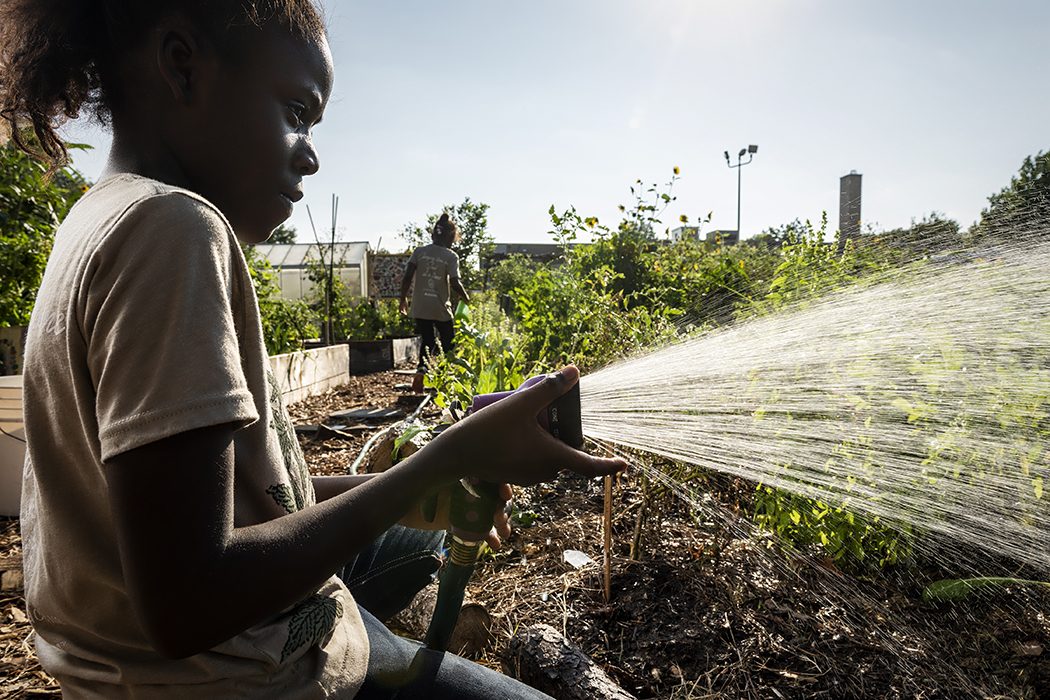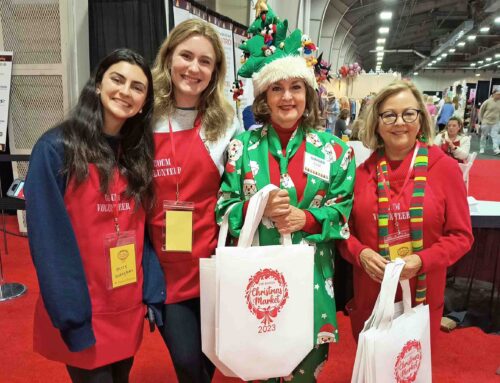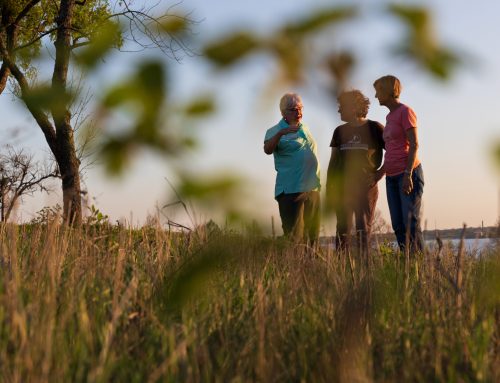
Photography by Danny Fulgencio.
The closing of the Fiesta at the corner of Ferguson and Highland forced Elizabeth Morgan to change a 10-minute stroll from her apartment near Ferguson and Interstate 30 for groceries to an hour-and-a-half round-trip trek across I-30 to Walmart. Morgan lives in a food desert, a neighborhood where residents don’t have access to transportation to a grocery store that is more than a mile away.
Morgan helps care for her disabled husband, Timothy. He is homebound, has kidney failure and is in a wheelchair after suffering a stroke in 2013. She walks her children to Bayles Elementary each day. On the first day of school, Morgan received calls about her 9-year-old son, Christian. She says he has ADHD and struggles to focus.
The solution for all three of her struggles? A garden at her local elementary school.
After Morgan learned about the Promise of Peace garden that sat on the edge of the school property, her son attended after-school classes at the garden, making mulch, planting fruits and vegetables, and watering. The fruits of his labor eventually made it home, where his father loved to cook the produce. Christian asked to go to the garden on his birthday. His behavior has improved since he started working there, Morgan says.
Morgan learned about her dietary choices and how to prepare healthier meals with the produce. She also has her own plot. Not only has the garden saved her a few grueling trips to Walmart each month, it transformed her family’s diet. Her husband lost 130 pounds, and his kidney is stable.
Christian and his 11-year-old sister, Alexia, have adapted to the new diet. When they refused to eat junk food at Timothy’s sister’s house, she was alarmed. “My sister-in-law called and was freaking out,’ ” Morgan says.
“ ‘What is wrong with the kids? I think they are sick. There is something wrong!’ ”
The Promise of Peace Garden is a 10-year-old nonprofit that neighbor and Woodrow graduate Elizabeth Dry started on an empty lot on Grand Avenue. The 45-year educator saw children that “lacked a sense of place and belonging.” She wanted to give the youth a place to feel welcome. For her, gardening was the obvious choice. “I knew from gardening that connecting to nature and seeing its magic gives you a sense of purpose and place,” she says.
Though it began as a way to engage students at Woodrow, she soon realized that many of the children didn’t have enough food at home. “There were children crying themselves to sleep because they were hungry.”
The food grown in the gardens began making its way to hungry families. Dry has several gardens around Dallas, and the Grand location eventually moved to White Rock United Methodist Church before landing at Bayles Elementary, where the garden has its own portable. Teachers take classes to learn about the garden.
Volunteers weed, water and help maintain the green space. The garden’s neat plots sit between mulched pathways, with okra, herbs, melons and more. The garden’s main fundraiser is Okrapalooza, where top Dallas chefs compete in an okra cook-off every September. It began when the original garden on Grand had an abundance of okra, and Dry needed a way to pay the rent for the property.
She has introduced the word “Okraly” to those close to the garden, a word that she thinks captures the spirit of the gardens. “I see a need for us to reconnect, where we seek to understand by sharing and caring.”





